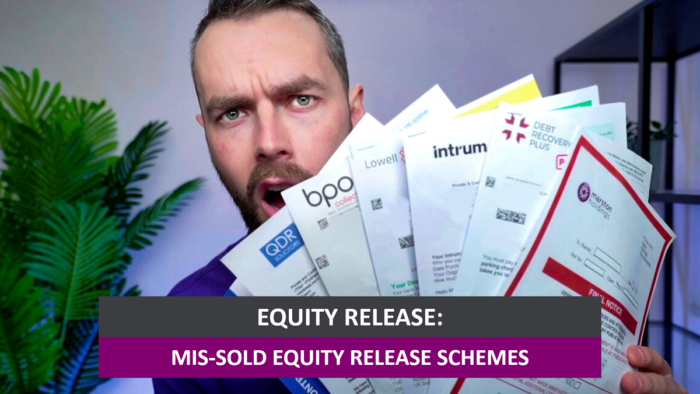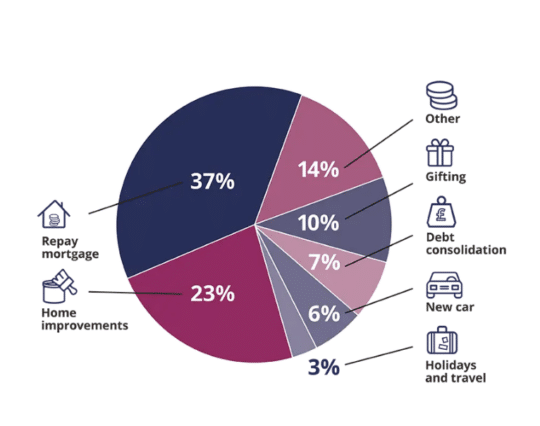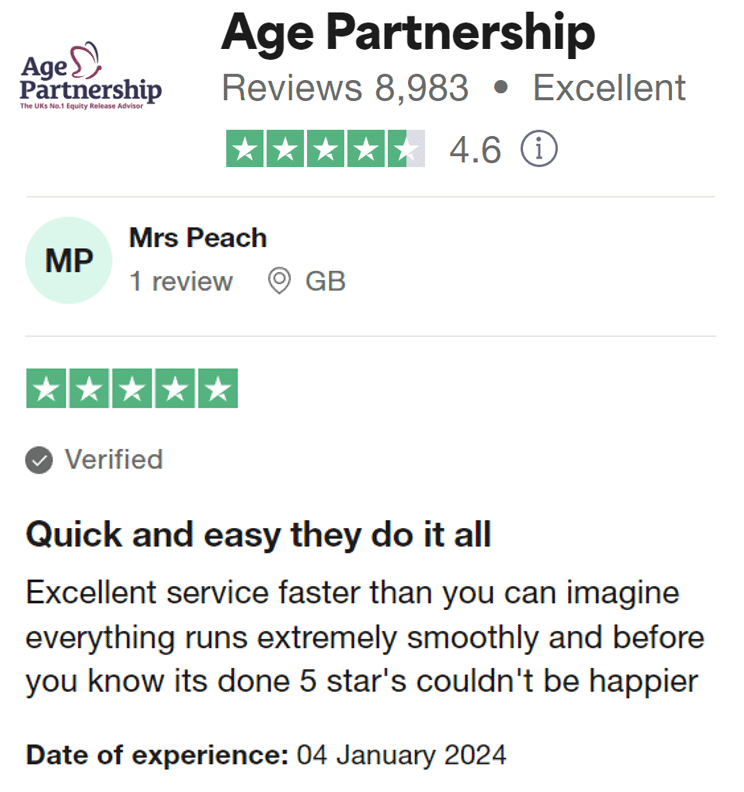Mis-Sold Equity Release Schemes – What you Should Know
Our preferred equity release adviser is Age Partnership. For free and impartial money advice you can visit MoneyHelper.

Our preferred equity release adviser is Age Partnership. For free and impartial money advice you can visit MoneyHelper.
Are you keen to understand more about equity release schemes? You’re not alone – each month, we guide over 7,000 people on this topic. In this easy-to-follow guide, we’ll explain:
- The basics of equity release.
- The process to get a fair quote.
- The good and not-so-good parts of releasing equity from your home.
- How equity release could touch your inheritance tax.
- If you might lose your house with equity release.
We understand that equity release can seem tricky. Many people worry about the danger of being mis-sold a scheme. We’re here to help clear up your doubts and guide you through the process. Our mission is to make sure you know all the important bits about equity release, so you can make a choice that’s right for you.
Let’s start this journey together, step by step.
Does it happen?
Signs of miss-selling
Some of the common signs of being mis-sold an equity release mortgage or scheme are:
- Interest charges not being fully explained
- Early repayment costs and other loan fees not explained properly
- Inheritance tax implications not discussed
- Alternative options not explored or pointed out
- The wrong plan recommended
Another big one is being told to remove a homeowner from the property ownership to meet the age requirements. This is dangerous for the younger homeowner if their partner passes away first.
How equity release could help
More than 2 million people have used Age Partnership to release equity since 2004.
How your money is up to you, but here’s what their customers do…
Find out how much equity you could release by clicking the button below.
In partnership with Age Partnership.
An example
An example of equity release being mis-sold would be a client speaking with a financial adviser about the possibility of releasing equity to help their son buy a home. Despite having £130,000 in savings, the adviser suggests that the client releases £60,000 instead, and without truly explaining the total cost this would bear over time.
The adviser should have been recommending that they use some of their savings instead, and they should be fully explaining the total costs of equity release.
What you can do
You can claim compensation against mis-sold equity release schemes. The compensation received by successful claimants should put them into the financial position they would have held if they were given the correct advice in the beginning. This includes all fees and can even include financial compensation for the distress caused.
Join thousands of others who release equity
Age Partnership have helped over 2 million people release equity from their home.

Mrs Wareham
“I am more than pleased to have taken out Equity Release with Age Partnership.”
Reviews shown are for Age Partnership. Search powered by Age Partnership.
How do I complain about it?
The first step to complain about mis-sold equity release is to write a formal complaint letter to the lender. If they do not agree with your assessment, the complaint can be escalated to the Financial Ombudsman Service.
The Financial Ombudsman Service is a body set up to deal with disputes like these and they will look at both sides to make a decision on whether compensation should be awarded or not.
» TAKE ACTION NOW: Find out how much equity you could release
What if my lender went bust?
If your lender has gone out of business, you might still be able to claim compensation. You should direct your complaint to the Financial Services Compensation Scheme (FSCS).
Can you sell property wherein equity was taken out?
If you have taken out an equity release mortgage or home reversion plan, it’s still possible to sell your home and move or downsize. The Equity Release Council insists that any homeowner who wants to move to a suitable alternative property should be allowed to do so.
For the new property to be suitable, it should be of equal or higher value and just as easy for the lender to sell on the open market in the future. For example, moving into an extremely remote area may cause issues because the lender may feel they will not be able to sell the property easily.
It gets a little more complex if you want to downsize to a less valuable home. You may need to pay off some of your equity release scheme in the process, which can trigger early repayment fees. However, including a downsizing clause in your original agreement can help you avoid early repayment charges when downsizing.


